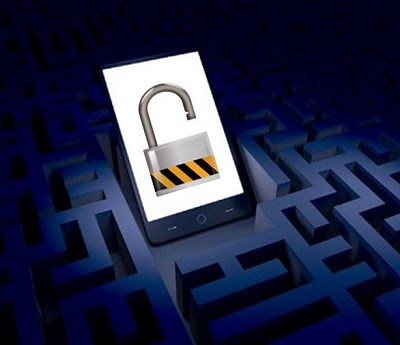The business has developed a type of sensor that can be embedded beneath a display panel.
A new kind of technology that could make a considerable difference to mobile security has just been patented by a company in South Korea, marking what could potentially be a future turn in the direction being taken in fingerprint scanning on smartphones and other devices.
The technology allows the fingerprint sensor to be embedded underneath a smartphone’s display panel.
The company that has patented the technology, CrucialTec, has only just received the approval that it needed for the patent in question. According to reports, the company first filed for the patent back in 2012. This is an interesting development, as the announcement followed closely on the heels of one that revealed that Apple had filed to patent technology relating to fingerprint scanning in its own mobile security TouchID tech.
Apple’s patent showed that it was seeking to patent mobile security tech that would bring its scanner beneath its display.
 Apple’s patent filing showed that the company has been trying to take its fingerprint scanner off its home buttons in order to add it under the display of the devices. This move would be an important one for Apple, as it would make it possible to make some considerable changes to the design of its various mobile devices, such as the iPhone.
Apple’s patent filing showed that the company has been trying to take its fingerprint scanner off its home buttons in order to add it under the display of the devices. This move would be an important one for Apple, as it would make it possible to make some considerable changes to the design of its various mobile devices, such as the iPhone.
It has not yet become evident whether or not the patents that have been filed by CrucialTec and by Apple are in any level of conflict with one another, but that will certainly be an important discovery as things move forward. Keeping in mind that CrucialTec is a supplier of fingerprint scanners for Huawei, the importance of these patents becomes even greater.
Huawei is among several of the lower end smartphone makers that have been cutting into the market share of the high end gadgets from Apple. It isn’t unlikely that this mobile security technology will start to send the companies into some intense legal action in order to ensure that they will be able to hang on to the technologies that they have sought to patent.
Mobile security threats may not be as serious in the mobile payments space as they seem
Security has become a major concern in the mobile commerce space, but security firm Kaspersky Labs suggest that security may not be as big of a problem as some would claim. The firm notes that there has been a significant increase in the prevalence of mobile malware, especially in the banking sector. The security issues that exist in the mobile payments space, however, are still “fairly minimal,” suggesting that mobile commerce may be a much safer space than some believe it to be.
Mobile payments are not exposed to the same security threats as the banking sector
Kaspersky Labs notes that consumers participating in mobile commerce are not experiencing the same risks as those that are on traditional devices, such as laptops or desktop computers. This has to do with the relative youth of the mobile commerce sector. Because this sector is still in a state of infancy, malicious software has not yet had an opportunity to thrive therein. By comparison, the banking sector is quite old and has been involved in the technology space for several years now and this time has allowed malicious groups to focus their efforts on certain vulnerable areas.
New trends are emerging that could compromise mobile security
 While mobile payments may not be exposed to serious risks, there are still dangerous trends emerging in this space. Phishing Trojans are becoming more common in the mobile space. These malicious programs are designed to obtain the personal information of their targets, gaining access to bank accounts and exploiting other financial information. Such programs are likely to become more common and more sophisticated as the mobile commerce space matures.
While mobile payments may not be exposed to serious risks, there are still dangerous trends emerging in this space. Phishing Trojans are becoming more common in the mobile space. These malicious programs are designed to obtain the personal information of their targets, gaining access to bank accounts and exploiting other financial information. Such programs are likely to become more common and more sophisticated as the mobile commerce space matures.
Consumers can take steps to protect themselves and their important information
Consumers can keep themselves and their information safe through a variety of measures. Using anti-virus applications from reputable organizations, such as Kaspersky Labs, can help people protect themselves from malware. The increasing prevalence of biometric technology may also introduce more security to the mobile commerce space. This technology leverages biological information, such as a fingerprint, to protect a mobile device.
 Apple’s patent filing showed that the company has been trying to take its fingerprint scanner off its home buttons in order to add it under the display of the devices. This move would be an important one for Apple, as it would make it possible to make some considerable changes to the design of its various mobile devices, such as the iPhone.
Apple’s patent filing showed that the company has been trying to take its fingerprint scanner off its home buttons in order to add it under the display of the devices. This move would be an important one for Apple, as it would make it possible to make some considerable changes to the design of its various mobile devices, such as the iPhone.
 While mobile payments may not be exposed to serious risks, there are still dangerous trends emerging in this space. Phishing Trojans are becoming more common in the mobile space. These malicious programs are designed to obtain the personal information of their targets, gaining access to bank accounts and exploiting other financial information. Such programs are likely to become more common and more sophisticated as the mobile commerce space matures.
While mobile payments may not be exposed to serious risks, there are still dangerous trends emerging in this space. Phishing Trojans are becoming more common in the mobile space. These malicious programs are designed to obtain the personal information of their targets, gaining access to bank accounts and exploiting other financial information. Such programs are likely to become more common and more sophisticated as the mobile commerce space matures.